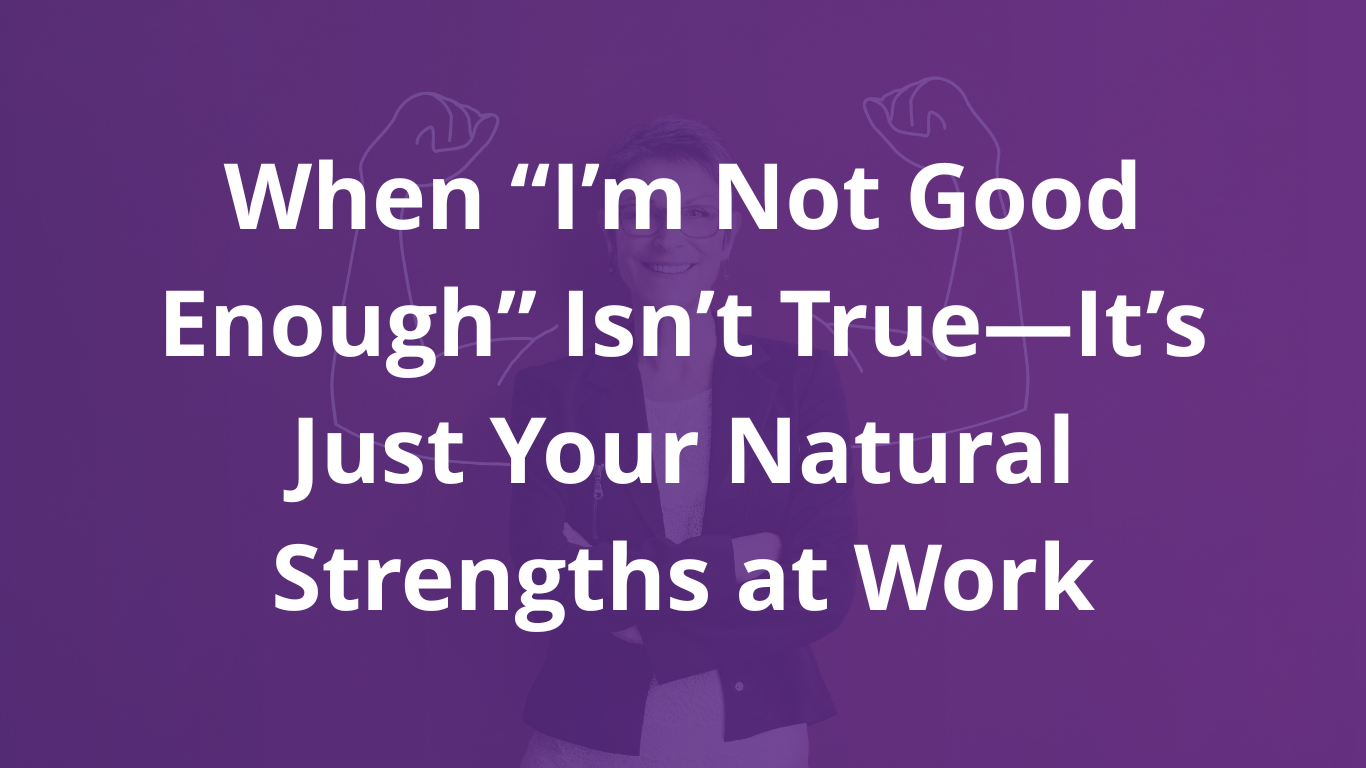When “I’m Not Good Enough” Isn’t True—It’s Just Your Natural Strengths at Work
August 21, 2025
- Kolbe A™ Index
- Kolbe Wisdom


When your natural way of getting things done doesn’t match the people around you, it can leave you feeling “less than” even when you’re more than enough.
We’ve all had those thoughts:
Most of us chalk those feelings up to a lack of skills or different values. But often, the real cause is conative—our instinctive way of taking action.
Different people naturally operate in different ways. When your MO is out of sync with those close to you, it can feel like you’re always doing things wrong. Amy Bruske, President of Kolbe Corp and coauthor of Do More, More Naturally, shared two personal examples.
“Growing up, I got straight A’s and took honor classes. Still, I felt dumb. My dad and mom attended Berkeley and Stanford, and both always seemed to have detailed information to back up every point they made. At the dinner table, when the discussion invited my input, my family would ask me to justify my thoughts or provide data to reinforce my opinion. After a while, I just quit talking. I can look back now and understand why I felt so different from the others in my family. I am a natural simplifier, and I don’t have the same need or natural drive to delve into the details as they do. The insight into why I never felt a need to defend my position with external facts allowed me to just let it go.”
Amy wasn’t lacking intelligence. She was just wired differently. Her natural way of working didn’t match her family’s, and that gap created self-doubt.
She also saw it happen to her dad:
“I wasn’t the only one in my family to feel ‘less than’ because of the way someone influential reacted to the way they did things. My grandfather was a copper miner who excelled when working with his hands. Nearly every time he visited, my dad ended up feeling as though he couldn’t do anything right. My grandfather was also a natural planner who saw projects through to completion. He immediately noticed all the things my dad had jury-rigged or left undone. My grandfather meant well, but with each critique, my dad felt like a failure. Dad looked at those projects from the perspective of ‘it works—it opens; it closes; it’s fine.’ My grandfather wanted to help my dad ensure his work would stand the test of time. Their natural ways of solving problems fell on opposite ends of the spectrum.”
That’s “conative imposter syndrome.” It’s not about lacking skills or effort. It’s about being judged, or judging yourself, by someone else’s instinctive strengths instead of your own.
When you gain clarity about your natural strengths, you start to see why you work the way you do. With that clarity, you can make stronger commitments—choosing roles, tasks, and goals that align with your energy instead of drain it. And when you collaborate with others who bring complementary strengths, you move from friction to flow.
Pause and ask: is this about actual skill, or is it about a mismatch in instinctive styles?
Taking the Kolbe A™ Index gives you a clear picture of your natural way of taking action. It shows that your instincts aren’t a weakness to fix—they’re a strength to build on.
You don’t need to be like anyone else. You just need the freedom to be yourself.
________________________________________________________________________________
Finding the freedom to be yourself is a surefire way to Do More, More Naturally. If that sounds great to you, it’s easy to learn more. Enjoy a free download of the first chapter at Kolbe.com/DoMore